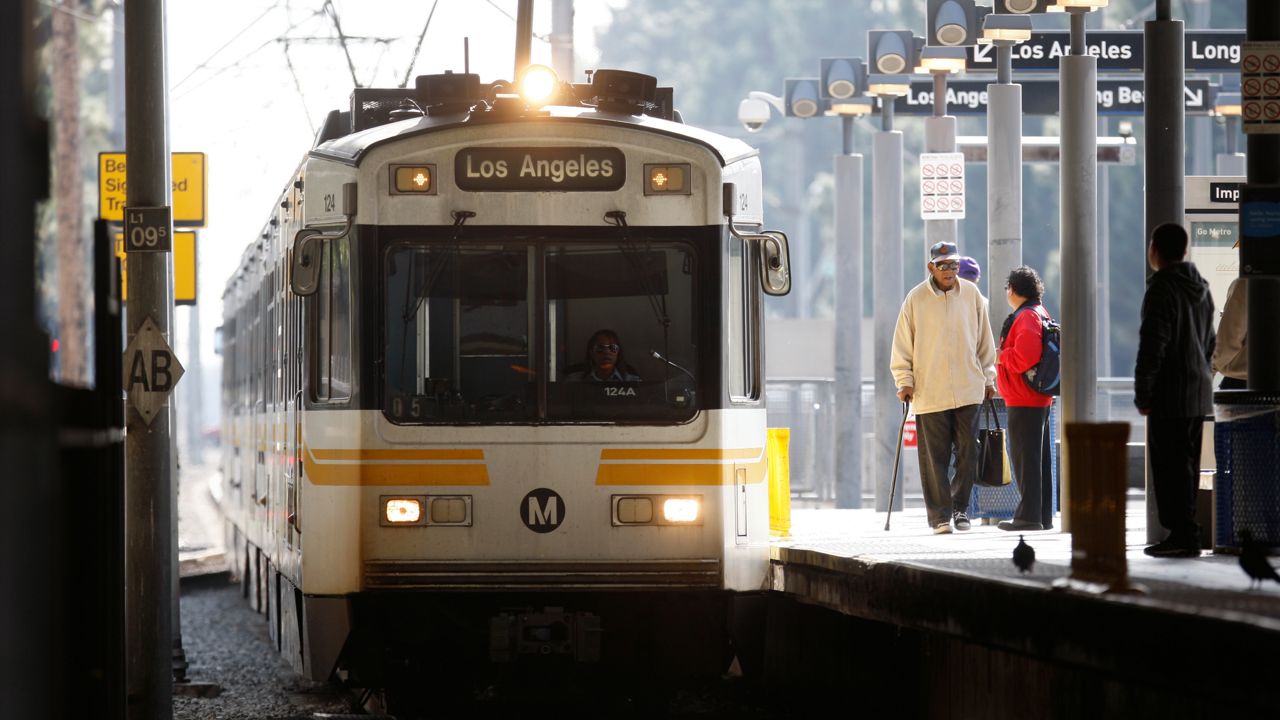LOS ANGELES — After a long and heated debate Thursday, the Metro Board approved an extension of its law enforcement contracts with the Los Angeles Police Department, Los Angeles County Sheriff’s Department and Long Beach Police Department. While many members of the 13-person Board expressed strong reservations about the manner in which law enforcement has executed those safety contracts since they were last negotiated in 2017, they nevertheless authorized Metro Chief Executive Stephanie Wiggins to extend them annually for up to three years.
In May, the Metro Board will also consider establishing its own in-house transit police department.
“I’m very excited at the notion of creating an in-house agency that could be a real opportunity to re-envision public safety, especially public safety connected to transportation,” LA Mayor and Metro Board member Karen Bass said before voting to continue the law enforcement contracts.
An in-house transit public safety department “would be an opportunity to recruit officers that are interested in a different approach,” she added. "What we have traditionally done is looked at trying to change a culture of an existing institution, which is a heck of a lot more difficult than creating a new institution with a new culture.”
Metro’s train ridership in February was 59% of what it was prior to the pandemic and bus ridership was 78%.
“The concerns about feeling safe on our system are depressing ridership and our ridership growth rate,” Wiggins said.
The Board’s vote allows Wiggins to continue its law enforcement contracts through June 30, 2026, contingent on compliance with the principles of Metro’s bias-free policing policy and public safety analytics policy it adopted in late 2021.
A work in progress, the agency has recently rolled out various components of that plan, including a new ambassador system to help bus and rail passengers report maintenance, safety and cleanliness issues. Many Metro Board members at Thursday’s meeting, however, said that the system is most effective with law enforcement backup, while also acknowledging problems with oversight.
Board Member Lindsey Horvath expressed several reservations about extending the contracts before voting no. She expressed concerns about whether Metro had adequately evaluated LAPD’s bias-free policing policy to ensure it aligns with the transit agency. She also asked about accountability measures to ensure deputies get out of their cars to patrol the system by riding on buses and trains.
Acknowledging that the law enforcement contracts are not perfect, Board member Hilda Solis said, “We need to do everything we can to assure that people are safe. If we don’t have a safety program in place, we’re not going to see the ridership come back,” she said before voting in favor of extending the contracts.
Dozens of representatives from transit, housing and environmental justice groups strongly opposed the plan.
“Metro has the opportunity and responsibility to address safety concerns on the system by addressing the root issues,” said ACT-LA representative Scarlett De Leon. “We cannot police our way out of this.”
The law enforcement vote came the same day the Metro Board approved a motion to extend the pilot drug-free Metro campaign on the B/D lines for an additional 90 days and to deploy transportation security officers and ambassadors to B/D station hot spots most acutely impacted by the increase in reported crime.
Metro reported Thursday that crime on its rail system increased 25% from January 2022 to January 2023. Most of them were victimless crimes such as weapons possession, trespassing and narcotics possession. While bus driver assaults decreased 31%, there was a significant increase in drug-related violations. Since February 13, however, when Metro began its anti-drug campaign on the Red, Blue and Gold lines, there has been a 10% decrease in customer-related drug complaints.
In December 2021, the Metro Board unanimously approved a new public safety mission to guide its approach to reimagining public safety on its system. “In presenting that new framework, we acknowledged that the current model did not align with the new public safety mission and value statements,” Wiggins said.
She acknowledged that the current public safety model utilizing law enforcement agencies resulted in inconsistent rule compliance and was reactive in its response, suffering from a one-size-fits-all approach. The new approach, she said, is informed by data to be more flexible, is more proactive than reactive and will result in more transparent outcomes.
In May, Metro will consider a plan to develop its own in-house transit police department to improve accountability, oversight, personnel deployment, transparency and control over budgeting and resources. The goal, Metro said, is officers who would get to know the transit agency’s employees and customers so they aren’t merely reacting to calls for service but meeting the agency’s mission to provide equitable and safe transportation.
Metro said eight of the 10 largest transit agencies in the U.S. already have such departments, including New York City and Chicago.



